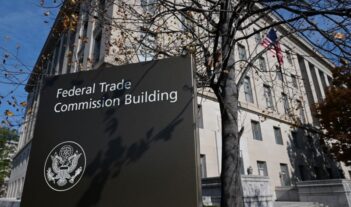
New regulations to protect consumers from telemarketers’ automatic calls.
Every month, more than 200,000 consumers complain to the Federal Trade Commission (FTC) about robocalls. Robocalls, or automated telephone calls, often originate from deceptive companies making false promises to lower credit card interest rates. To protect consumers from such unwanted telemarketing calls, new Federal Communications Commission (FCC) regulations take effect this month.
The new FCC rules, issued under the Telephone Consumer Protection Act (TCPA), aim not only to protect consumers but also to create consistency between the FTC’s Telemarketing Sales Rule and the FCC’s rules under the TCPA. The FCC’s seeks to reduce industry confusion about telemarketing companies’ obligations to the public without increasing compliance burdens.
The FCC rules require businesses to obtain “prior express written consent” from individuals before they are able to place telemarketing calls that use automatic dialing systems or artificial or prerecorded voices to their mobile phones. The rules require the same type of consent before a company can make telemarketing calls using an automated voice to a residential phone line. The new regulations also apply to marketing text messages sent through an automated mechanism because text communications are primarily between telephones, and thus for the FCC’s purposes they constitute a “call.”
The required written consent must give the person opting-in to such calls a clear idea of what types of contact they are consenting to receive. The potential receiver of the calls must explicitly give permission to get the automated calls or text messages only on specified phone numbers. As part of the rules, the FCC will allow email, website forms, text messages, telephone key press, or voice recordings to be adequate to fulfill the “express written consent” requirement, in accordance with the E-SIGN Act. Further, no business may obtain consent as a condition of purchasing a good or service.
The penalties for a company found in violation of the rules can be from $500 to $1,500 per call or text message. Also, since the TCPA provides a private right of action, businesses that violate the new rules may risk costly class action litigation. Class action lawsuits under earlier TCPA rules have already cost some corporations tens of millions of dollars.
While restricting the ability to use automated dialing systems to place calls to mobile phones may seem to target only a small group, a Centers for Disease Control survey conducted in 2012 showed that upwards of 38% of households have only wireless phones with no landlines. Since the number of wireless-only homes appears to be on the rise, a significant customer base for businesses can only be reached through mobile phones. For businesses that rely on automated dialing services to reach a broad range of new customers, the new rules may seriously impact their business models.
Businesses may also be concerned that the FCC is taking away the “established business relationship” exception that previously allowed companies to make robocalls to existing or previous customers, with the view that a prior purchase created an implied consent to be contacted.
Some legal experts are reportedly concerned that companies will have a hard time getting customers to “re-opt-in” to their databases when a prior business relationship existed. Because the express written consent must be clear and unambiguous as to how consumers will be contacted, companies will need to focus on the language used in such consent agreements to avoid vagueness and confusion that would make them vulnerable to litigation.
Of course, nothing in the new rules stops telemarketers from having a live person make calls to any number, including mobile phones. Exceptions also exist for emergency calls, or informational calls from health care organizations, non-profits, and political groups. Furthermore, automated calls or texts from someone’s own wireless carrier are permitted, as long as the customer is not charged for the call time or text message.
Despite the exception the rule adopts for political groups, the new FCC regulations may nonetheless affect the political process by changing how some pollsters conduct surveys. The agency’s discussion of the rule notes that consent is required before survey takers use automated dialing systems to contact wireless users, but that no such consent is required before contacting residential wireline consumers in this manner.
As many polling companies such as StPetePolls use automated dialing systems to get data, they may be prohibited from calling a large portion of their usual lists of registered voters who are in wireless-only homes. Cutting out such a large portion of voters from election polls could skew results and increase the margins of error if they would otherwise only have been reached through robocalls. Rather than resort to the much more expensive method of hand-dialing numbers with live operators, pollsters may opt to conduct less accurate polls targeting only landlines.
Other robocall-related rules already went into effect earlier this year. These include a requirement that companies that have consent from consumers to make robocalls create a method to opt-out at the beginning and throughout the duration of the call. Also in effect are limits on “abandoned” calls, or calls initiated by an automated system but disconnected when a live operator is not able to pick up the call. No more than three percent of calls in any particular calling campaign may be an abandoned call.



